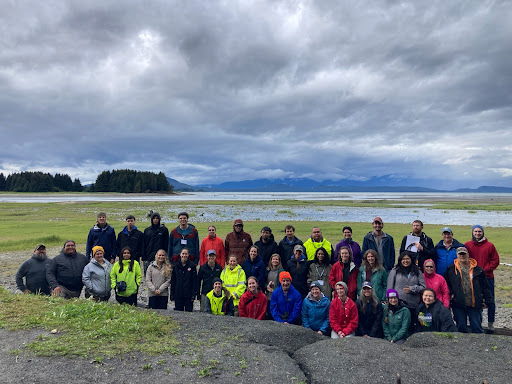
NCCOS’s Phytoplankton Monitoring Network trained over 40 environmental tribal personnel from Southeast Alaska in toxic phytoplankton sampling and identification. This workshop took place during the Southeast Environmental Conference, an event sponsored by the Central Council of Tlingit and Haida Indian Tribes of Alaska to bring together Southeast Alaska tribes, natural resource professionals, agencies, and organizations within the region to learn and address common environmental priorities. This year’s workshop included a session on methods to sample and identify harmful algal blooms, shellfish collection, and regional paralytic shellfish toxin trends in the Gulf of Alaska.
The NCCOS partnership with Southeast Alaska Tribal Ocean Research (SEATOR) is a multi-year project funded by the EPA Indian General Assistance Program and the Administration for Native Americans-Environmental Regulatory Enhancement Program. SEATOR was formed in 2013 to mitigate the threats of eating shellfish tainted with algal-based toxins during traditional subsistence shellfish harvesting. The organization monitors toxic plankton blooms, tests shellfish for toxins, and advocates for higher water quality standards.
The National Phytoplankton Monitoring Network (PMN) is a community-based network of volunteers monitoring marine phytoplankton and harmful algal blooms (HABs). PMN recognizes the interrelationships between humans and coastal ecosystems while providing volunteer citizen scientists with meaningful opportunities for hands-on science engagement. The PMN enhances the Nation’s ability to respond to and manage the growing threat posed by HABs by collecting important data for species composition and distribution in coastal waters and creating working relationships between volunteers and professional marine biotoxin researchers.
